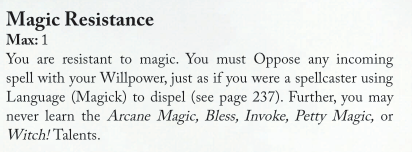- 4,837
- 1,645
This is basically a pet project that I've been working with fellow supporters, but we decided that the Aethyr Manipulation resistance system needs some clarifications accounting for the RPG tie-in. So I've introduced a blog below detailing the mechanics and how they should be translated into resistance. This is meant to mostly harmonize the two systems together, as well as try its best to translate the dice-based mechanics into a more tangible and plausible interpretation for the wiki.

 vsbattles.fandom.com
vsbattles.fandom.com
tl;dr - Aethyr Manipulation resistance should be separated by layers due to how the Degrees of Success system functions, and this should be the standard we follow when tackling more characters who have Aethyr Manipulation resistance.

Warhammer Fantasy: Contextualizing Aethyr Manipulation Resistance
tl;dr - Aethyr Manipulation resistance should be separated by layers due to how the Degrees of Success system functions, and this should be the standard we follow when tackling more characters who have Aethyr Manipulation resistance.